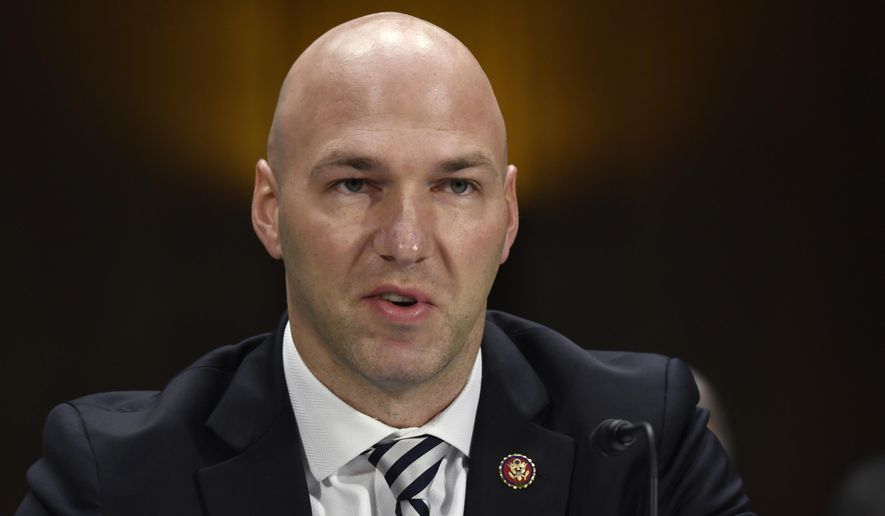Federal legislation setting guidelines for college athletes to pursue money-making opportunities could be proposed within a month, and the congressman planning to introduce it said there will be no blanket antitrust exemption for the NCAA.
Rep. Anthony Gonzalez, R-Ohio, said Thursday it’s imperative for Congress to act in time to render moot the array of state laws that are being considered or already have passed and are slated to go into effect as soon as next year.
Gonzalez’s comments came during a Knight Commission on Intercollegiate Athletics webinar five weeks after the NCAA announced it would move forward with a plan to allow athletes to earn money for endorsements, personal appearances and social media content, among other things.
Ohio State athletic director Gene Smith, who led the group that produced the recommendations approved by the Board of Governors, has said there will be no caps on how much an athlete can earn.
Still, the issue of a possible antitrust exemption for the NCAA has been raised because some states suspect the NCAA will use “guardrails” to put limits on athletes and their ability to maximize their earning potential in a free market.
Gonzalez said the idea of an antitrust exemption is a non-starter.
“That wouldn’t pass,” he said. “It’s legislatively impossible right now.”
Congress’ primary focus is to set up a general framework that can evolve over time. He said it’s important to pass a bill to avoid a situation where a high school athlete compares and contrasts states’ different NIL laws while choosing a college.
“We believe a federal law is what’s appropriate to preempt all the state-by-state chaos,” Gonzalez said. “We all know it doesn’t make a whole lot of sense to have a high school student looking at different state legislatures and saying ‘I like Florida’s law better than Oklahoma’s law, so maybe I’ll go to the University of Miami.’
“If you get into a federal standard, you clean that up for the athletes, you make it simpler. It levels the field for all of college sports so no matter what state you’re in, you play by the same rules, which in theory means you have equal opportunity inside of that.”
Among key points addressed in a federal law would be establishing that college athletes are not employees of their school, protecting the integrity of recruiting and the transfer portal and punishing bad actors who turn NIL into a pay-for-play system.
Gonzalez said he also believes independent oversight of the entire process is necessary with representation for the interests of athletes, schools and the outside entities that would make deals with athletes. The oversight body would provide reports to Congress to show how the NIL issue is playing out.
Gonzalez, a former football player for Ohio State and the Indianapolis Colts, said both parties and members of the House and Senate agree legislation is needed.
But the coronavirus pandemic has slowed the legislative process on Capitol Hill, and Gonzalez said it’s a race against the clock with Florida’s state NIL law set to go into effect in July 2021 once it’s signed by the governor.
Sports law professor Gabe Feldman of Tulane University’s Center for Sport said on the webinar that federal lawmakers might need to consider passing temporary legislation to put the state laws on hold.
___
More AP college football: https://apnews.com/APTop25CollegeFootballPoll and https://apnews.com/Collegefootball and https://twitter.com/AP_Top25




Please read our comment policy before commenting.